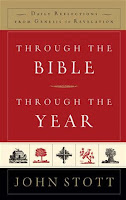
Judgment and Vocation
Romans 2
Following
the catalog of sins in Chapter one, Paul anticipates our proclivity toward
judgment. We are not like the honest
pagan, who after being shown the 10 commandments for the first time, ruefully
admitted “Well at least I haven’t killed anyone.” If you are like me, you have a keener ability
to detect sin in others than in yourself.
Paul is cautioning us about doing so.
He gives several reasons why judgement is bad for us.
(1) It
is often a case of projection (vv. 1-3).
We often condemn people whose sin is most like our own. David condemnation of the fictitious character
in Nathan’s parable is a case in point (cf. 2 Samuel 12). Beware of what you rail against; it will
betray you – “for in passing judgment you condemn yourself.”
(2) We
misread God’s forbearance. God is
patient so that all of us might return to him.
This patience is as much for us as it is for others (v.5). God shows no partiality so that judgment and
mercy should be expected based on responsiveness to the divine will (vv.
9-11).
(3) The
advantage of having the law is no advantage if one does not obey it; God reads
hearts as they are expressed in behavior (vv. 15-16).
(4) Our
advantages due to birth do not translate into spiritual advantage (vv.
17-24). Some people are born on third
base and believe they have hit a triple.
But Paul isn’t buying it. He
knows religious heritage has no advantage apart from a renewed heart.
(5) Thus,
Paul argues, echoing the prophets (Ezekiel 36:26, Jeremiah 31:31) a Judaism of
the heart (vv.25-29).
So why is Judgment destructive to the church?
(1) It
usually precludes inner reflection and reformation. We are too busy comparing ourselves to those
who make us look good. But others are
not our standard.
(2) It
is highly selective and tends to undervalue the advantages we have been given.
(3) We
don’t know how hard someone fought against sin before succumbing to it. Beside it focuses on the problem rather than
the solution. This is wasted energy.
Paul prefers a redemption attitude that yields reformation and renewal of
life.
No comments:
Post a Comment